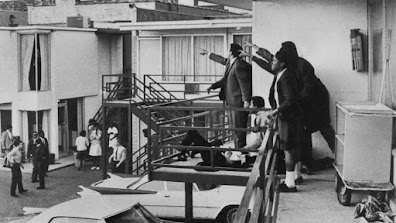A day of freedom, and its obverse...
Three birthdates:
1885: Baroness
Karen Christenze von Blixen-Finecke (Isak Dinesen on her books), Danish author ("Out of Africa")
1897: Thornton Niven Wilder, American novelist and playwright - see February 16
1916: Sirima Ratwatte Dias Bandaranaike, the world's first woman Prime Minister...
which latter is no doubt true in the specific (Prime Minister), but somewhat disingenuous in the general (national leader)... to name but a few:
Maatkare Hatshepsut Khnemetamun, Pharaohess of Egypt in the 15th century BCE
Neferneferuaten Nefertiti, a hundred years after her, and several Cleopatras later on
Sammuramat of Assyria in the 9th century BCE
Aliénor
d'Aquitaine and Isabella of Castille
Queens Mary and Elizabeth of Tudor England (technically Queen Jane as well, but she only lasted nine days; technically Mary Queen of Scots as well, but she was powerless throughout her reign)
Catherine de Medici, Queen of France in her own right, but also the mother of three kings, and the cousin of a Pope
Amina of Nigeria and Mbande Nzinga of Angola
Queen Victoria of course
Tzu-Hsi and Wu Zetian, both Empresses of China
Sorghaghtani Beki of Mongolia, Mehr-un-Nissa (“Nur Jahan - light of the world”) of India, Lydia Lili‘u Loloku Walania Wewehi
Kamaka‘eha, remembered as “Lili’uokalani”, the very last ruler of independent Hawaii, Queen Seondeok of Korea
and the Trưng sisters, precursors of Jeanne d'Arc, who led the Vietnamese to freedom from the Chinese in the 1st century CE...
 |
Hai Bà Trưng - the Trung Sisters
|
and three events:
"Bay of Pigs" invasion, today in 1961 - see November 13
Zimbabwe became independent, today in 1980 (I have a note that Ian Smith became Prime Minister of Southern Rhodesia on April 13th 1964, but I don't plan to expand on that sad fact in this blog; and anyway you will find I have already lamented that sad, sad country, in my page on it in "The World Hourglass" - click here)
Queen Elizabeth II gave Canada complete independence from Britain, today in 1982 (interestingly phrased! and absolutely questionable - I once had the pleasure of sitting next to Michaëlle Jean, the then Governor-General, at a Jewish community dinner in Toronto, and in making conversation I asked her, quite directly, about this: she smiled, very graciously, and changed the subject - yes, the word I want to use here is definitely "subject").
And lastly, and quite possibly my favourite recorded historic moment ever (yes, I know I've said this on several other occasions):
Today, in 1986, peace was formally agreed, and signed, between the Netherlands and the Scilly Isles. Who even knew they were at war - or that the Scilly Isles might have the means of making war? In fact, it was the longest war in the entirety of human history, a conflict that positively erupted on March 30th 1651, and went on, unbroken, unresolved, unremarked, and unbloody, fully 335 years, until somebody in Holland thought it might be a good idea to end the silly nonsense... click here to read about it.
Wouldn't it be so much more interesting and exciting if we gave our kids world history in school, instead of the narrow parochialisms of "the history of those who have ruled our little tiny realm, their wars, their marriages, their occasional reforms, mostly their tyrannies", which is all that most countries on planet Earth can manage?
The illustration at the top of the page has Hatshepsut upper left, Mbande Nzinga upper right, Nur Jahan lower left, and Queen Seondeok of Korea lower right
You
can find David Prashker at:
Copyright
© 2018/2024 David Prashker
All
rights reserved
The
Argaman Press













